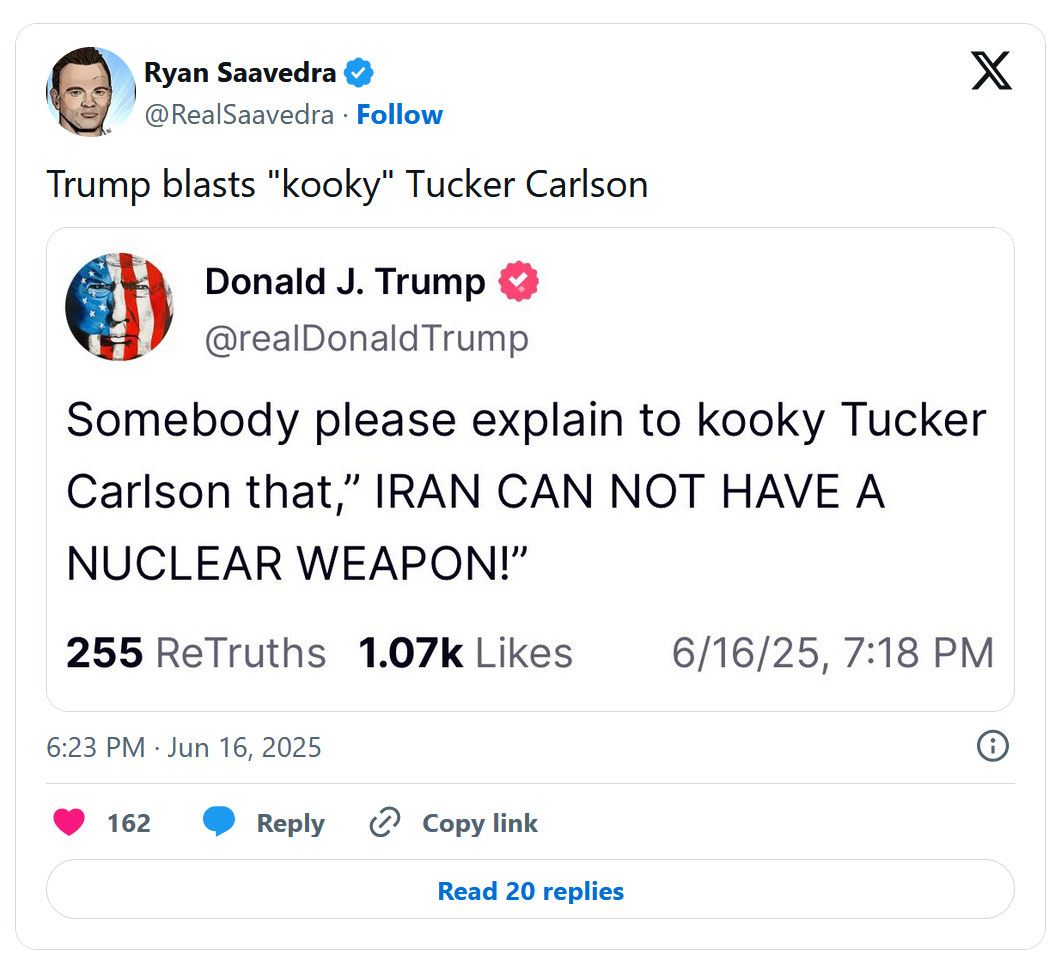MATTHEW CONTINETTI: A Decade of Donald Trump.
The reaction to Trump’s announcement was just as noteworthy as its content. No one in Washington understood what was coming. Pundits dismissed his candidacy. On the Fox News Channel’s “All Star Panel” that evening, NPR’s Mara Liasson said Trump “will be ignored from henceforth.” George Will compared Trump to a Ford Edsel. Charles Krauthammer said sarcastically, “His one redeeming characteristic? He is very rich.”
Yet the conservative grassroots were intrigued. Radio talk show king Rush Limbaugh, based in Florida, thoroughly enjoyed his friend’s remarks. “This is going to resonate with a lot of people, I guarantee you,” Limbaugh told his audience. And his callers agreed. “I think the guy’s for real this time, only because he’s got such a damn big ego that he’s going to prove himself right and he’s going to be in your face,” said one. “Listen,” said another two days later, “I think that Trump has got a very good chance of getting elected president of the United States.”
How did Beltway wise men misjudge the Trump phenomenon? The answer must be that men and women who spent generations in politics and government had a harder time seeing how the country had changed since the end of the Cold War. The new economic, social, demographic, and cultural realities prepared the ground for a norm-breaking, performative, take-no-prisoners populist. When Trump said, “Sadly, the American dream is dead,” Washington scoffed—even as Americans told Gallup that they had lost confidence in practically every institution.
What once seemed like a foreign language is now the lingua franca. The world that dismissed Trump as an aberrant interloper is gone. He demolished it. His revolution enters its second decade not as a curiosity but as the new normal. And the rest of us are still trying to catch up.
Some in America taking much longer than others:




